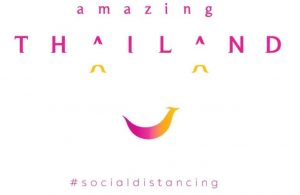Madrid (Spain) – March 23, 2020 (travelindex.com) – by Mr. Xu Jing, Specialist in Tourism of Asia and the Pacific/ Former Director of Asia-Pacific UNWTO – How Asia-Pacific tourism will be impacted in the wake of COVID19? Will NTAs be prepared to confront with the on-going and post crisis? Are we ready for a drastic game change? Xu Jing shares his personal insights on the evolving trends – go domestic, go short haul, go all- inclusive while analyzing the egg-basket concept, the previous crisis reference as well as long term perspective of rethinking and re-planning.
Over the years, the global tourism industry has made remarkable advancements, among which the performance of Asia and the Pacific has always been outstanding. As we speak, the region takes roughly a quarter of the world’s international tourist arrivals while its revenue accounts for over 30% of the total share. For more than two decades, Asia and the Pacific has almost always been the fastest growing region. The feeling is that of a celebrity star under the dazzling spotlight. Furthermore, the overwhelming share of the Chinese outbound market within Asia-Pacific and its increasing share in the world has equally put the region in the central stage of world tourism.
However, since the beginning of 2020, the outbreak of the novel coronavirus disease (COVID-19) has suddenly hit the tourism industry in Asia and the Pacific more severely than a tsunami of any scale.
On 24 January 2020, with the notice issued by the Chinese government to suspend all enterprise operations, tourism was completely shut down overnight, both inbound and outbound. As a result, tourism in Asia wasdisrupted in all directions as well as for the world experiencing unprecedented shocks. On 11 March, WHO declared the COVID-19 epidemic as a global pandemic due to its rapid spread to North America, Europe and the Middle East. As of date, diagnosis has been confirmed on all six continents except Antarctica. This shock will undoubtedly be a disaster of the highest order for the global tourism industry in 2020 and beyond.
Looking back on the glorious days of international tourism industry, it is only recent that we repeatedly chanted the importance of tourism. Remember those authoritative claims? One in every 11 job opportunities is created by the tourism industry, and as many as 3 million cross-border tourists every day contribute to the prosperity and development of the world. We are the sun rising industry brighter than any other sectors, and we are the inexhaustible green oil!
Now, out of the blue and in front of the crisis, the industry is so much disrupted! Disrupted to the extent that we have no choice but to give in temporarily because we are confronted with the risk of losing so many lives on this planet earth!
The crisis once again tells us that tourism is such a fragile and dependent industry! This is not the first time that the international tourism industry has been disrupted. SARS in 2003 and the tsunami at the end of 2004 also had a huge impact on the global tourism industry. However, this outbreak of the novel coronavirus is certainly the worst. History and the future remind us that this crisis will not be the last.
The Asia-Pacific tourism situation in 2020 should have been another course of action. In 2019, the region’s growth rate once again achieved fantastic results of 7%. At the national level, various tourist destinations actively developed a series of tourism products, hoping to create even greater glories. China’s outbound tourism continued to maintain a strong momentum; Japan broke through 30 million inbound tourists as early as 2018 and is advancing towards the government target of 40 million; Malaysia, Nepal and many other Asian countries started 2020 with the “Year of Tourism”. And destinations such as Thailand, South Korea, and Australia were all focusing on how to prevent tourists from over-concentrating and discussing the urgent issue of how tourists diverge.
However, the novel coronavirus changed all this and caught Asia and the world by surprise.
As of March 10, before WHO announced the global pandemic, WTTC already believed that the negative impact of the epidemic in China alone would shrink the world tourism industry by 25%. Of these, 80% impacted could be SMEs, and as many as 50 million people could lose their jobs due to this crisis. Take Thailand as an example. Last year, it received circa 39 million international tourists, and its income was roughly one-fifth of national GDP. Among them, Chinese tourists accounted for more than 10 million. One can easily imagine how the epidemic has been affecting the country. According to an estimate by a British media, many small businesses in Phuket are hard to survive if the crisis lasts for more than three months.
According to the analysis of CAPA, most of the airlines in the world are likely to go bankrupt before May this year with the spread of the virus worldwide! It may sound too sensational, but it reflects the harshness of reality.
The accuracy of the above data is no longer the most important thing in the face of such a rapidly spreading plague. In recent days, understandably so due to the swift control of the disease nationwide, all levels of Chinese government are actively preparing for the resumption of work, the resumption of production, and the reopening of businesses. Furthermore, the culture and tourism ministry is considering how to resume operations of the tourism industry step by step. But with the spread of the virus to the rest of the world, it is almost by now an ideal of wishful thinking.
China is no longer the only factor in the equation. Iran and Italy fell! Spain, France and Germany are in danger! Even Britain has said that deaths will be measured in thousands or even hundreds of thousands!
In such a grim situation, I don’t see how one can predict the direction of China’s tourism!
In such a grim situation, I don’t see how one can predict the direction of Asian tourism!
In such a grim situation, I don’t see how one can predict the direction of world tourism!
I’m not a pessimist, because all things are still changing, because we don’t know where Asian tourism can go as a result of such a worldwide epidemic! But we have to shoulder the responsibility to think and prepare to win the tourism revival war.
At this stage, we may be able to vaguely feel that some trends are gestating:
1. To discuss which egg in the basket is no longer important
When the epidemic had just spread in China, most destinations were quick to say that next time we should not over-focus the source market to China. No matter how great the market of China is, once a crisis comes, no one wants to put all eggs in one basket as the old saying goes! Does it make sense? Absolutely it does! But the discussion is no longer meaningful, because other source markets are or will soon be hit the same way. Even with eggs of different colors, it is now difficult to put them in different baskets anyway as there aren’t other ones.
2. Past recovery experience is no longer applicable
It is pertinent to mention that after SARS in 2003, the international tourism industry came up with a corresponding recovery plan to assist China’s tourism industry. At that time, it was the Chinese inbound tourism market that was hit. The Chinese outbound market then was not yet playing a pivotal role in the global market as it is now.
As for the tsunami at the end of 2004 and into 2005, although the international tourism community came up with a set of revitalization plans represented by the “Phuket Global Tourism Recovery Action Plan”, the crisis hit only several Asian destinations, unlike now which is worldwide.
Therefore, the crisis management needed now is all directions involving both major source countries and all major destinations. We are now talking about the possible recovery of tourism that has no precedence for reference.
3. The shift from inbound tourism to domestic tourism
As China, the United States, and European countries successively announced restrictions on travel by their nationals, the world has come to a sudden stop with all of the most important tourist source markets vanishing overnight. In this situation, tourism administrations must come up with corresponding measures as soon as possible to save the disaster. Being unable to choose any target market externally, the first consideration may be the domestic tourism market. Although this market is not as economically efficient as the international market for many destinations, it is expedient to solve the immediate crisis as a makeshift method. If countries are keenly aware of this sudden change and recognize the domestic market as the goal, they must make timely adjustments to their destination tourism policies. Changes in the market direction should not be a major problem for countries such as China and India or developed countries such as the United States and Europe, and there should be no problem in following up policies and measures. As far as China is concerned, this may also be a good time to turn crisis into opportunity, and take advantage of the current situation to drive domestic consumption that needs to be promoted. However, destinations that rely heavily on inbound tourists, such as the Maldives and Fiji, will be seriously challenged to adjust in a short period of time.
4. Short-haul products could be more popular
Several industry professionals are already advocating this idea. As they say, compared to international long-haul products that cross national borders, this short-haul trend in the market may become part of the immediate solution. I would categorize this type of products as those that are close-range within the domestic boundary. Typical itineraries could include city breaks, outings in the suburbs and rural tourism products within short distance. It is therefore suggested that they should become the first batch of leisure tourism as part and parcel of the overall recovery process. What needs to be considered as a word of caution is that these alternative products cannot be the same products of domestic tourism for years. They need to reflect the newness and the joy from the relief of pressure. A good reference point in product design is the post 2008 Wenchuan earthquake in Sichuan of China, where tourists just wanted mental joy with physical spend after their survival.
5. All inclusive package as holiday product will be on the rise
There are also industry insiders who are already paying attention to the products of a typical resort hotel in a closed ambiance. Once arriving at the destination, three meals a day, all entertainment and leisure are in situ. No moving out. In the short-term, it might be a popular product because nowadays all tourists will be talking about hygiene and health safety. I believe that the Maldives may also use this strategy in order to attract Chinese guests and other markets to return. However, from the perspective of government policy, we should consider those products that can directly bring greater radiation benefits to the community, rather than such “closed-door” leisure that mostly benefits large enterprises.
6. From a long-term planning perspective
Over the years, we have had too many governments and enterprises that are enthusiastic about developing large scale projects and construction of assets of volume under the excuse of embracing the high-growth tourism industry in the Asia-Pacific region. Now in the region, you easily find hotels with 5,000 rooms each or a cruise ship with 7,000 cabins. Once the crisis comes, once we have a lockdown like now, disaster of course comes. Unemployment is inevitable, and pressure to honour financial commitments cannot be escaped. It is even more expected that the upstream and downstream supply chains are broken! If we had less cement accumulation before, and if we had destroyed less of nature due to construction in the first place and did not pursue the maximization of profit, maybe we can still survive through the crisis this time. The original form of tourism after all is that of family based bed & breakfast. I am sure we could have less impact with smaller scale of businesses.
7. Rethinking is needed to bring back tourism more to the attainment of SDGs
This unprecedented crisis will hopefully bring warnings to human beings, not only to overcome the virus epidemic, but also to rethink what our fundamental concept of developing tourism should be. I sincerely hope that tourism is more than the basic enjoyment and rights of our mankind. Tourism should be an effective means to achieve the Sustainable Development Goals (SDG) set by the United Nations! In any crisis, restructuring and shuffling will be inevitable. It will be all industry-wide. The impact is not only on traditional travel agencies and hotels, but also on every link in the modern Internet supply chain. Let us stop for a moment and maybe we can change our mind. Let us turn crisis into opportunity,. Let tourism contribute not just to our physical pleasure but more to sustainable production of resources! Let tourism contribute to more sustainable consumption of goods!
It is my personal conviction that if the consumption of resources is minimized by human beings, the impact of a crisis of any sort should also be minimized. In so doing, let us hope that tourism will be on its real road of being green.
The crisis of the coronavirus is still underway. The difficulties are far from over. Let us unite under one roof of the world to overcome. Together we can do it and tomorrow will be brighter.
First published by Mr. Xu Jing on March 18, 2020 on Linkedin











